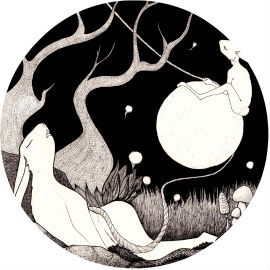
Australian troops in the advance trenches, ca. 1917. John Oxley Library. State Library of Queensland. Neg 194809.
When the war was over, I thought I was done with grieving. Don came home and, though he wasn’t quite the man I’d seen off two years earlier, he was still my Don. I just had to look a little harder to see him sometimes. Or tease him a little more before he’d shuck off his dark mood and sparkle. Once he’d put away his uniform and taken a few showers–once he’d washed with strong soap and eaten a few good meals—he smelled like my Don again. My likely lad. Warm and sweet and good.
Beth’d climb up on his lap and tuck herself into his embrace. She was just that size, you know; her body fit between his lap and his chin. She’d sit there, frowning at his newspaper as if she knew her letters as good as he did.
I’d untethered something in myself when he came home. Let myself believe he was immortal. That we all were. That’s how we’d felt before the war; that’s what we returned to afterwards. The world was ours–the future, too–and all its bright offerings.
When they died—first Beth and then Don—I felt more anger than grief. I wanted to write the war office and tell them they’d done us wrong. It wasn’t right to bring him home only to have him die of flu. Better to have left him in Europe with the others. Better to have been left with the idea of him heading home someday than have him here, not two streets from our house, buried in such ordinary, unforgiving ground.

No Comments